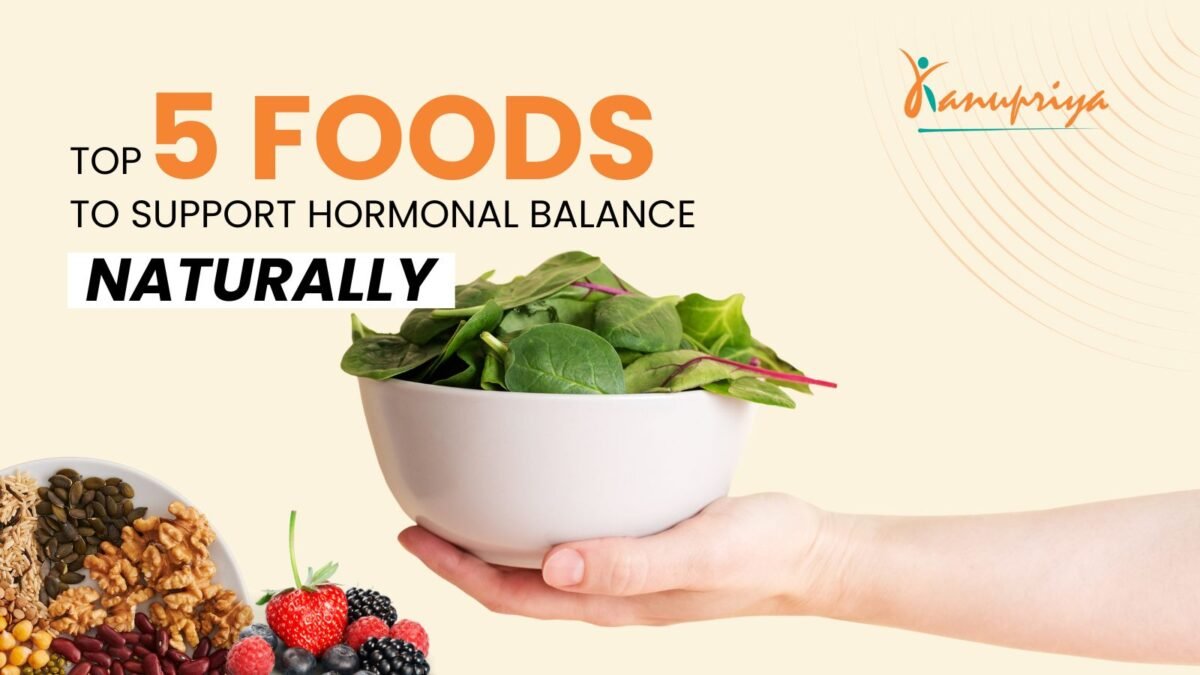Hormones play a vital role in regulating various bodily functions, including metabolism, mood, reproductive health, and sleep patterns. When our hormones are out of balance, we can experience a range of issues from fatigue and weight gain to mood swings and menstrual irregularities. Fortunately, nutrition can profoundly influence hormonal harmony. In this blog post, we’ll explore the top five foods that can support hormonal balance naturally, empowering you to take charge of your health.
1. Nuts and Seeds
Nuts and seeds, including almonds, walnuts, flaxseeds, and pumpkin seeds, are excellent sources of healthy fats, protein, and fiber—all essential for hormonal balance. They provide crucial nutrients like vitamin E and zinc, which have been associated with balanced hormone levels and reproductive health. Additionally, flaxseeds are particularly rich in lignans, plant compounds that can help modulate estrogen levels in the body. A handful of nuts or a sprinkle of seeds can make for a nourishing snack or a delicious addition to your meals!
2. Leafy Greens
Leafy greens like spinach, kale, and Swiss chard are powerhouses of nutrients, including vitamins A, C, and K, as well as minerals like magnesium. Magnesium is particularly important for hormonal health, as it assists in the regulation of cortisol and insulin levels. Leafy greens are also rich in fiber, promoting healthy digestion and stabilizing blood sugar levels. Incorporate a variety of these greens into salads, smoothies, and stir-fries for a nutrient boost!
3. Fermented Foods
Gut health is closely linked to hormone regulation, and fermented foods can play a significant role in supporting a healthy gut microbiome. Foods like yogurt, kefir, sauerkraut, kimchi, and kombucha contain probiotics that promote the balance of beneficial bacteria in the digestive system. A healthy gut can enhance the metabolism of hormones and reduce the risk of hormone-related issues. To harness these benefits, try adding a serving of fermented foods to your daily routine!
4. Berries
Berries, such as blueberries, strawberries, and raspberries, are not only delicious but also packed with antioxidants, vitamins, and fiber. These nutritional powerhouses help combat oxidative stress, which can disrupt hormonal balance. The fiber in berries also supports digestive health and aids in the regulation of blood sugar levels. Incorporating a variety of berries into your diet can be as simple as adding them to smoothies, oatmeal, or yogurt, making them a versatile and nutritious choice.
5. Fatty Fish
Fatty fish, such as salmon, mackerel, and sardines, are excellent sources of omega-3 fatty acids. These healthy fats have been shown to help reduce inflammation and support hormone production. Omega-3s play a crucial role in regulating cortisol and insulin levels, both of which are vital for managing stress and maintaining stable energy levels. Aim to include fatty fish in your diet at least twice a week. If you’re not a fan of fish, consider incorporating chia seeds or flaxseeds as plant-based sources of omega-3s.
Conclusion
Supporting hormonal balance doesn’t require extreme measures or complicated diets. By incorporating these five foods—fatty fish, leafy greens, fermented foods, nuts and seeds, and berries—into your daily meals, you can nourish your body and promote hormonal harmony naturally.
As you embark on this journey, remember that consistency is key, and it’s essential to listen to your body’s unique needs. If you’re struggling with hormonal issues or want personalized nutrition guidance, don’t hesitate to reach out to a qualified nutrition professional. Together, we can develop a tailored plan that supports your health and wellness goals.
Here’s to vibrant health and balanced hormones through the power of food!

